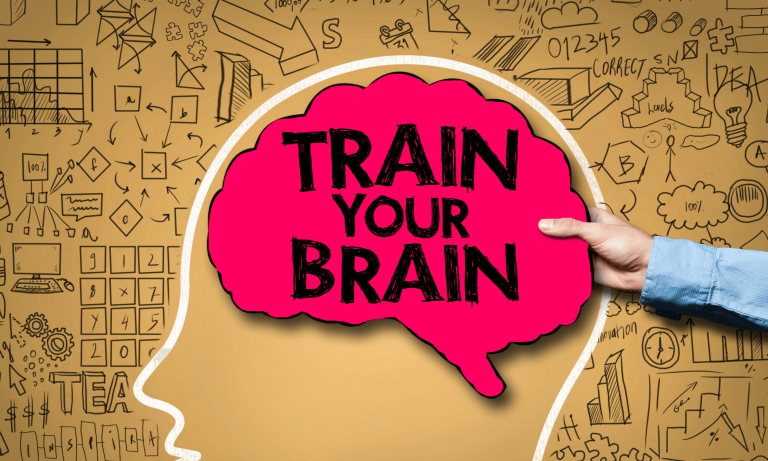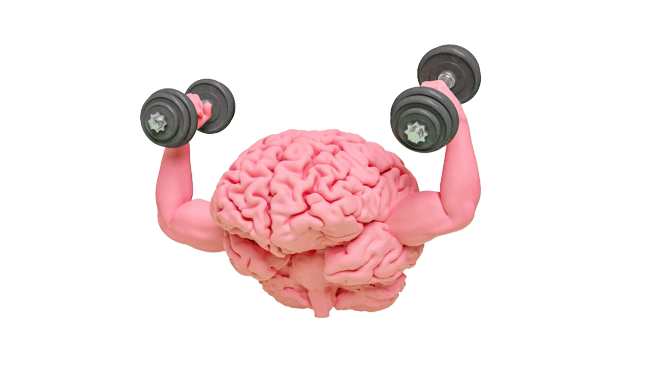
Helping Links
Subscribe & Get Yours Goal Setting Template for 2024
Train Your Brain [7 Tips to control your mind] Mind Gym
Keeping your brain and your emotional well-being in top condition is called mental fitness. This doesn’t mean competing in “brain Olympics” or acing an IQ test. Mental dexterity workouts to your daily routine could allow you to reap the benefits of having a sharper mind and healthier body in the future.
Mental fitness is as vital as physical fitness and shouldn’t be ignored. According to research published in the Proceedings of the National Academy of Sciences, certain exercises for memory training could increase “fluid intelligence,” the ability to think and tackle new challenges.
How long does brain training take?
How you train your brain isn’t as important as doing it frequently. It may take 4 to 6 months of routine training to provide results. Brain training, like other muscles, must be maintained. Because many of our daily tasks are automatic, we must make an effort every day.
Train your brain
So many of us spend our days rushing from one thing to the next. We are busy, have demands from several aspects of our lives, and just do not have time to stop and smell the roses.
We can, however, take the time to slow down with a determined effort. We can find greater happiness, joy, and significance in our lives by practicing mindful living. Being attentive, however, is not simple as it sounds.
Brain fitness is based on two principles: curiosity and variety. When something you do becomes routine, you have to change your approach. If you’re able to do the crossword in you sleeping, it’s time to tackle an entirely new challenge to get the most effective workout of your brain. Being curious about the environment around you and its workings and how you can comprehend it can keep your brain active quickly and efficiently. Trying out a new and challenging activity is an excellent way to improve and preserve cognitive abilities.
Your brain has the ability to learn and expand as you age, a process known as brain plasticity, but you must exercise it on a regular basis.
“Eventually, your cognitive skills will diminish, making thinking and memory more difficult, so you need to build up your reserve,” says Dr. John N. Morris, Social and Health policy specialist at the Harvard-affiliated Institute for Aging Research. “Embracing a new pastime that requires continuous practice and encourages you to think and learn can be one of the finest ways to keep the brain healthy.”
Tips to control your mind!
There are several ways of training you mind. Some of the most efficient ways are discussed below.
The physical and mental challenges
Regular physical exercise has been demonstrated in studies to increase cognitive processes such as memory recall, problem-solving, concentration, and attention to detail. However, it remains unclear whether the physical aspect alone benefits your brain or if a mix of other factors, such as the mental challenge of the activity, frequency of participation, and desire to develop, also play a role.
Consider the sport of swimming. It has obvious cardiovascular and muscle-building benefits, but it also requires continuous thought, processing, and learning. You must be aware of your breathing rhythm as well as how to execute strokes and kicks correctly. You can also assess your expertise in terms of endurance and speed, which stimulates you to improve your swimming abilities.

Protect yourself from the negative effects of chronic inflammation
According to studies chronic, low-grade inflammation is a silent killer that leads to multiple major diseases like cardiovascular disease, type 2 diabetes, cancer, and other illnesses.
Focus on things you Can Control
This Blog Will Help You Out Focus On Things You Can Control!
Feel Your Feelings
You don’t want to avoid your feelings by being observant. Being in the present moment, just as it is, is part of it. That may include feelings of delight at times, but you don’t want to try to force cheerful ideas or suppress any emotional response. Sometimes you just have to accept bad emotions as a natural part of life.
Accept disappointment, sadness, rage, envy, and other emotions as they are, and allow yourself to experience them. Of course, you want to be conscious of how you react to your sentiments, but it is also healthy to recognize them for what they are.
Perform the appropriate activity
According to Dr. Morris, no matter which new activity you choose, make sure it follows three rules in order to enhance brain training.
Challenging: To strengthen your intellect, you must constantly push it. This is why taking up a new activity is so good. It stimulates your brain to learn something new and provides opportunities to grow.
Complexity: A complex activity not only excites you but also requires your brain to focus on specialized intellectual processes such as problem-solving and creative thinking. A 2013 study published in Psychological Science discovered that older adults aged 60 to 90 who engaged in new and complex activities such as digital photography or quilting for an average of 16 hours per week for three months outperformed those who engaged in more familiar activities such as reading and crossword puzzles.
Practice: Practice makes perfect, and the same is true for brain function. “You can’t increase your memory unless you work at it,” says Dr. Morris. “The more time you spend engaging your intellect, the better it will be.”
Your activity should necessitate some level of consistent practice, but the goal should not be to strive for significant progress. “The regular repetition of attempting to better, rather than the pursuit of mastery,” adds Dr. Morris, “may have the biggest impact.”
Meditation
Meditation assists us in driving away negative ideas and feelings and replacing them with pleasant ones, first about ourselves and subsequently about all other beings. Focusing on oneself without guilt or ego interference is a necessary and sufficient condition for living a joyful life. It improves both our personal relationships and our relationship with the environment in which we live. We become loved, trusted, and caring people who are willing to help others if asked while retaining our own peace of mind.
The 3M’s Mindfulness, Meditation and Manifestation! [GUIDE]
Sit in the morning and spend some time outside

The morning is a wonderful chance to work on your mindfulness. As the day just gets started, it’s calm and quiet and you might be able to spend a few minutes taking a moment. Instead of stepping out of the bed and running through your morning routine, I prefer to take a break for a short time. Consider being grateful for the day and allow yourself to remain in the present. It is possible to relax on your couch and pay attention to controlled breathing. You can contemplate meditation. Meditation helps to start the day in the right mindset.
Spending some time outside can also help you establish mindfulness, and you don’t have to travel to a remote retreat to attain the desired benefits. All you need to do is go for a walk around your neighborhood. If you have some good trails, parks, or green spaces, they might create the ideal environment for connecting with nature and the present moment. Take note of everything you see, how the weather feels, what you hear, and what you smell when out for a walk.
Spiritual serenity
Another thing that is so easy to practice is a spiritual serene individual. Spiritual serenity is good for our mental and physical well-being. Peace of mind allows us to create a better relationship with ourselves and, as a result, with the people and beings around us.
A spiritually serene person does not get upset, agitated, or have bad feelings toward others; on the contrary, he or she develops amicable feelings. When others observe this person being calm and nice, they are positively affected and, as a result, become calm and friendly themselves.
These habits can stable an individual emotionally and intellectually. Pursuing these habits will help an individual to train his brain efficiently.

